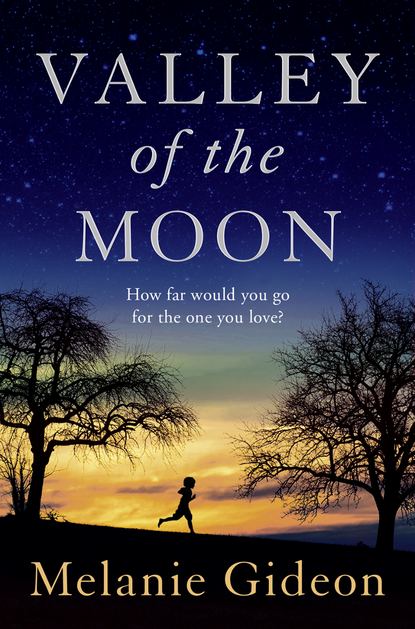По всем вопросам обращайтесь на: info@litportal.ru
(©) 2003-2024.
✖
Valley of the Moon
Автор
Год написания книги
2019
Настройки чтения
Размер шрифта
Высота строк
Поля
“Shell-shocked?” I offered.
He nodded. “You find this impossible to believe.”
“Well—yes,” I admitted.
He sat erect in his chair. “How can I help?”
How can I help? Had anybody ever asked me that? He had such a calm, steady presence about him. His gaze didn’t flit away from mine. He looked directly into my eyes without blinking. I was hanging on a rock face, searching desperately for my next handhold. He was offering to throw a rope up to me, to be my belayer.
“You’re not lying, are you?”
“I don’t lie,” he said.
“You really believe it’s 1906.”
“It’s 1906, Lux.”
“Do you believe I’m from 1975?”
“I must confess I’m struggling a bit with that.”
“You think I’m lying?”
“No. I think you believe it’s 1975.”
“Then you think I’m crazy.”
He hesitated and then said, “It has crossed my mind.”
“So we’re both thinking the same thing. That the other is a lunatic.”
I don’t know who began laughing first, but the laughter was contagious. I stood ten feet away from him, but that distance closed rapidly, our communal astonishment at the madness of our situation serving as a bridge, connecting us to one another.
Finally he stood. “I think a tour of Greengage is in order.”
“You want to give me proof that this place is really what you say it is.”
“Proof and a chance to show the farm off.”
“You’re the one in charge? The owner?” I suspected he was—everybody looked to him.
“I bought the original parcel of land, but as far as I’m concerned we all own Greengage Farm equally.”
“Greengage? Oh, because of the plums? You must grow them. I love greengage jam.”
“We don’t grow greengage plums. They are notoriously hard to grow.”
“Then why did you name the farm Greengage?”
He frowned ever so slightly. “Would you like a tour?”
“Sorry. Yes, please,” I said. Stop asking so many questions, Lux.
As we walked, Joseph explained to me what he’d set out to do, what kind of a community he’d envisioned: a residential farm where all jobs were equally valued and all jobs, whether done by men or women, paid out the same wage.
“Women still don’t get paid as much as men,” I said.
I watched his reaction carefully. Would he be surprised to hear that fact? He didn’t seem to be.
“You were quite forward-thinking for your time, then,” I said. “A real feminist.”
“A feminist?” He raised his eyebrows.
“Somebody who supports women’s rights.”
“Yes. Yes. Of course.”
Unless he was a brilliant actor, he’d never heard the word feminist. You couldn’t open a newspaper or magazine in 1975 without reading an article about feminists protesting some inequity or another.
Despite my skepticism, my heart lifted. What he was describing was a truly egalitarian society. I was in the presence of an honest-to-God idealist. I wanted to share with him that I was an idealist, too, but the idealist in me had been driven underground. Buried by the past five years of a shitty, low-paying job, and my inability to figure out how to better my and Benno’s lives.
Please let him be real. Please let this place be true, a little voice inside me said.
It was August and the fields were high with corn. In the orchard the last of the peaches clung to their branches and the apples were showing their first pinkish blush. The vegetable garden overflowed with produce: peppers, green beans, zucchini, tomatoes, cucumbers, and squash. It was the farm’s busiest season, he explained.
There were people hard at work everywhere. Some ignored me when he brought me by; others stared boldly. I didn’t sense unfriendliness, more of a stunned curiosity. Would I help them? Would I hurt them? I tried to appear as unthreatening as possible. I said hello whenever I caught somebody’s eye; still, I knew they were relieved when I moved on. I felt like a voyeur. Perhaps they felt like an exhibition.
“How do you decide where to put people to work?” I asked.
An elderly man picked corn. For every ear of corn he put in the basket, the woman beside him picked a dozen. It obviously wasn’t an easy task for him.
“I don’t decide, they decide,” Joseph said. “If they want to be on the garden crew, they’re on the garden crew. If they want to be on the animal crew, they’re on the animal crew.”
“But what if everybody wants to be on the animal crew and nobody wants to be on the garden crew?”
“That’s never been the case. The numbers always work out.”
“But what if somebody isn’t suited for the particular kind of work they want to do?”
“There’s always some way they can contribute. If you tell a man he’s useless, he becomes useless.”
Yes. And if you tell a woman she’s only good enough to clean up people’s dirty plates, she’ll always be cleaning up people’s dirty plates, I thought.
“How many crews are there?” I asked.
“Garden, fields, orchard, brambles, animals, building, medical, domestic, kitchen, winery, and school,” he rattled off. “There’s also the herb garden, but that is Martha’s domain—she works alone.”
“Brambles?”
Другие электронные книги автора Melanie Gideon
Wife 22




 4.5
4.5






